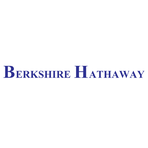Berkshire Hathaway: A Fortress of Cash Amidst Market Uncertainty
February 22, 2025, 9:52 pm

Location: United States, California, Cupertino
Employees: 10001+
Founded date: 1976
Total raised: $100M

Location: United States, Nebraska, Omaha
Employees: 10001+
Founded date: 1839
Total raised: $1.9B
Berkshire Hathaway stands as a titan in the investment world. Under the guidance of Warren Buffett, the company has weathered storms and capitalized on opportunities. Yet, recent developments have raised eyebrows. In the fourth quarter of 2024, Berkshire reported a staggering 71% surge in operating earnings, reaching $14.527 billion. This surge was primarily fueled by a remarkable 302% increase in insurance underwriting, which alone contributed $3.409 billion. The company’s cash reserves ballooned to a record $334 billion, a fortress of liquidity in uncertain times.
Buffett’s annual letter to shareholders revealed a mixed bag. While operating earnings soared, the overall investment landscape seemed less rosy. Investment gains plummeted from $29.093 billion in the previous year to just $5.167 billion. This sharp decline raises questions about the future direction of Berkshire’s investment strategy. Despite the impressive earnings, the company’s total earnings for the quarter fell by 47% compared to the previous year, indicating a disconnect between operational success and investment performance.
Buffett’s cash hoard has become a focal point for analysts and investors alike. Traditionally, Buffett has been known for his aggressive equity purchases. However, his recent actions tell a different story. Berkshire sold over $134 billion worth of stocks in 2024, primarily trimming its stakes in Apple and Bank of America. This trend of net selling has persisted for nine consecutive quarters, leaving many to wonder about Buffett’s cautious approach.
In his letter, Buffett reassured shareholders that the majority of their money remains in equities. He emphasized that this cash position does not signify a departure from his long-standing preference for stocks. Yet, the question lingers: why the sudden shift to cash accumulation? Analysts speculate that Buffett is preparing for a market correction or a significant investment opportunity that has yet to materialize.
Buffett’s reluctance to repurchase shares further compounds the mystery. Despite a robust increase in operating earnings, Berkshire has not engaged in buybacks since the previous quarter. This hesitance is particularly striking given the bull market, where the S&P 500 has gained over 20% for two consecutive years. Buffett’s inaction amidst rising stock prices raises eyebrows and fuels speculation about his outlook on market valuations.
The annual letter hinted at Buffett’s concerns regarding stock valuations. He noted that “often, nothing looks compelling,” suggesting a cautious stance towards potential investments. This sentiment resonates with many investors who have witnessed inflated valuations across various sectors. Buffett’s admission that he finds few attractive opportunities could signal a broader market concern.
Amidst this uncertainty, Buffett’s endorsement of Greg Abel as his successor stands out. Abel, vice-chairman of non-insurance operations, has been positioned to take the reins of Berkshire’s investment strategy. Buffett’s comparison of Abel to the late Charlie Munger suggests confidence in his ability to navigate challenging market conditions. This transition could be a strategic move to ensure continuity in Berkshire’s investment philosophy.
Berkshire’s insurance business remains a cornerstone of its success. The significant increase in insurance underwriting highlights the strength of this segment. However, the company also faces challenges, such as the estimated $1.3 billion pre-tax loss from wildfires in Southern California. This loss underscores the inherent risks in the insurance industry, even as it contributes to Berkshire’s overall profitability.
As interest rates are expected to decline from their multi-year highs, the implications for Berkshire’s cash reserves are significant. A lower interest rate environment could diminish the appeal of holding vast amounts of cash. Investors are left pondering whether Buffett will deploy this capital strategically or continue to hold it as a buffer against market volatility.
In conclusion, Berkshire Hathaway finds itself at a crossroads. The impressive surge in operating earnings contrasts sharply with the decline in investment gains. Buffett’s growing cash reserves raise questions about his future investment strategy. While he reassures shareholders of his commitment to equities, the lack of recent stock purchases and the ongoing trend of net selling suggest a more cautious approach. As the market evolves, all eyes will be on Buffett and his successor, Greg Abel, to see how they navigate the complexities of the investment landscape. Will they seize opportunities, or will they remain steadfast in their defensive posture? Only time will tell.
Buffett’s annual letter to shareholders revealed a mixed bag. While operating earnings soared, the overall investment landscape seemed less rosy. Investment gains plummeted from $29.093 billion in the previous year to just $5.167 billion. This sharp decline raises questions about the future direction of Berkshire’s investment strategy. Despite the impressive earnings, the company’s total earnings for the quarter fell by 47% compared to the previous year, indicating a disconnect between operational success and investment performance.
Buffett’s cash hoard has become a focal point for analysts and investors alike. Traditionally, Buffett has been known for his aggressive equity purchases. However, his recent actions tell a different story. Berkshire sold over $134 billion worth of stocks in 2024, primarily trimming its stakes in Apple and Bank of America. This trend of net selling has persisted for nine consecutive quarters, leaving many to wonder about Buffett’s cautious approach.
In his letter, Buffett reassured shareholders that the majority of their money remains in equities. He emphasized that this cash position does not signify a departure from his long-standing preference for stocks. Yet, the question lingers: why the sudden shift to cash accumulation? Analysts speculate that Buffett is preparing for a market correction or a significant investment opportunity that has yet to materialize.
Buffett’s reluctance to repurchase shares further compounds the mystery. Despite a robust increase in operating earnings, Berkshire has not engaged in buybacks since the previous quarter. This hesitance is particularly striking given the bull market, where the S&P 500 has gained over 20% for two consecutive years. Buffett’s inaction amidst rising stock prices raises eyebrows and fuels speculation about his outlook on market valuations.
The annual letter hinted at Buffett’s concerns regarding stock valuations. He noted that “often, nothing looks compelling,” suggesting a cautious stance towards potential investments. This sentiment resonates with many investors who have witnessed inflated valuations across various sectors. Buffett’s admission that he finds few attractive opportunities could signal a broader market concern.
Amidst this uncertainty, Buffett’s endorsement of Greg Abel as his successor stands out. Abel, vice-chairman of non-insurance operations, has been positioned to take the reins of Berkshire’s investment strategy. Buffett’s comparison of Abel to the late Charlie Munger suggests confidence in his ability to navigate challenging market conditions. This transition could be a strategic move to ensure continuity in Berkshire’s investment philosophy.
Berkshire’s insurance business remains a cornerstone of its success. The significant increase in insurance underwriting highlights the strength of this segment. However, the company also faces challenges, such as the estimated $1.3 billion pre-tax loss from wildfires in Southern California. This loss underscores the inherent risks in the insurance industry, even as it contributes to Berkshire’s overall profitability.
As interest rates are expected to decline from their multi-year highs, the implications for Berkshire’s cash reserves are significant. A lower interest rate environment could diminish the appeal of holding vast amounts of cash. Investors are left pondering whether Buffett will deploy this capital strategically or continue to hold it as a buffer against market volatility.
In conclusion, Berkshire Hathaway finds itself at a crossroads. The impressive surge in operating earnings contrasts sharply with the decline in investment gains. Buffett’s growing cash reserves raise questions about his future investment strategy. While he reassures shareholders of his commitment to equities, the lack of recent stock purchases and the ongoing trend of net selling suggest a more cautious approach. As the market evolves, all eyes will be on Buffett and his successor, Greg Abel, to see how they navigate the complexities of the investment landscape. Will they seize opportunities, or will they remain steadfast in their defensive posture? Only time will tell.